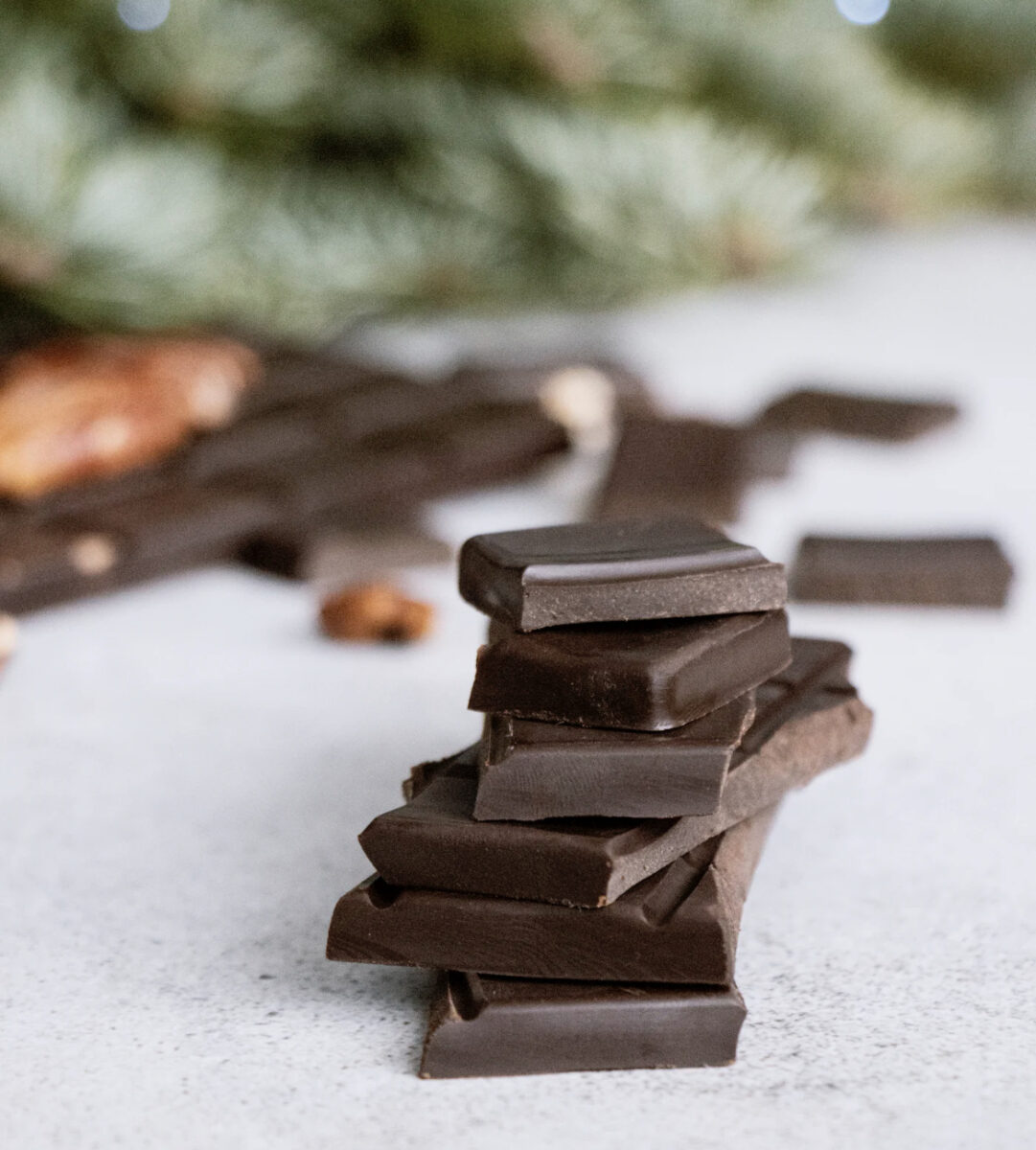No need to be afraid any more…Dark Chocolate is not as scary as you think
Are you thinking about indulging in chocolate this Easter? Or anytime in fact?
Why not consider dark chocolate!
Dark chocolate, always a well-loved food, that was named the “drink of the gods” by the Maya people, is dipped in history for thousands of years. Chocolate is derived from the seeds of the cacao pod, from the cacao tree. Theobroma cacao is native to the tropical rainforests of Central America.
Years of research tell us that eating dark chocolate could boost endorphin levels. Cocoa powder and chocolate contain chemicals called flavonoids that appear to be beneficial to the brain. Endorphins are the chemicals made naturally by our nervous system to cope with pain or stress. They are often called “feel-good” chemicals because they can act as a pain reliever and happiness booster.
Cocoa has been associated with health benefits that may include:
Reducing free radicals
Improving blood flow
Lowering blood pressure
Lowering “bad cholesterol”
Reducing inflammation
Reducing insulin resistance
Improving the brain’s ability to make new connections between neurons
Increasing microbiome diversity
Dark chocolate can be good for you!
Dark chocolate is rich in minerals, such as iron, magnesium, and zinc.
Chocolate is especially rich in flavanols like epicatechin and catechin, as well as anthocyanins and phenolic acids. All of the above compounds help protect our cells from inflammation, enhance brain function, and boost both immune and cardiovascular health.
Anti-inflammatory effects
Inflammation is a natural part of the body’s natural immune response to toxins, germs and other harmful substances. Although, chronic inflammation can damage cells and tissues and can increase the risk of many health conditions, including type 2 diabetes, arthritis, and certain types of cancer. Dark chocolate contains compounds with anti-inflammatory properties that may help reduce inflammation in the body.
Cardiovascular health and cholesterol
The flavanols in dark chocolate stimulate nitric oxide production within the body. Nitric oxide causes blood vessels to dilate, or widen, which improves blood flow and lowers blood pressure. Dark chocolate also contains a variety of compounds, such as polyphenols and theobromine, that can help reduce levels of low-density lipoprotein (LDL) “bad cholesterol ” in the body and increase levels of high-density lipoprotein (HDL) ” good cholesterol.”.
Enhanced energy
Dark chocolate can enable us to have more energy. Theobromine, a compound in dark chocolate, has similar effects to caffeine for boosting energy and overall morale. It helps to enhance mood and make you more alert.
Brain function
Eating dark chocolate may improve brain function and help prevent neurodegenerative conditions, such as Alzheimer’s disease and Parkinson’s disease. The findings of a small research project suggest that the flavanols present in dark chocolate may enhance neuroplasticity, which is the brain’s ability to reorganize itself, particularly in response to injury and disease. People looking to use chocolate to improve endorphin levels and mood should look for products that contain at least 70 percent cocoa and eat chocolate in moderation due to its high calorie and fat content.
Microbiome
The results of research also suggested that eating 85% dark chocolate may have a positive correlation with mood. The researchers attributed this benefit to the increased diversity of the microbiome, which can affect mood through the gut-brain axis.
So, Why dark chocolate?
Commercial milk chocolate contains cocoa butter, sugar, milk, and small quantities of cacao. In contrast, dark chocolate has much larger amounts of cacao and less sugar than milk chocolate. The percentage number of cocoa noted on the chocolate packaging refers to the percentage of all ingredients that the cacao plant makes up. A dark chocolate product will likely have a larger amount of the nutrients that deliver its benefits.
The flavonoid content varies among dark chocolate products. Processing methods also differ between manufacturers, and this can affect the flavanol content of the chocolate. At this point is not a legal obligation for chocolate manufacturers to report the flavanol content in their products. However, dark chocolate products with a higher percentage of cacao solids should generally contain more flavanols.
Moderation is key
One fact is clear for chocolate: the purer and darker the chocolate, the greater your health benefits. Raw chocolate or minimally processed dark chocolate high in cocoa solids is healthier than milk chocolate and white chocolate. Dark chocolate has anywhere from 50 to 90 percent cocoa solids, while milk chocolate is typically 10 to 30 percent. White chocolate is pure cocoa butter and doesn’t offer you any health benefits.
Although dark chocolate contains beneficial antioxidants and minerals, it is usually also high in sugar and fat, which makes it a very calorie-dense food.
How much dark chocolate can I have?
Chocolate is high in calories, so you need to enjoy it in moderation. It is recommended that we have 25 grams of dark chocolate no more than three times a week.
Bars of chocolate are difficult to measure because the sizing is so variable, but to help with portions, look at the packaging to see how many grams are in that bar. If the bar measures 75 grams eat no more than one-third of it in one sitting and then wait a couple of days before enjoying more.
One of my favourite dark choc treats…
DARK CHOCOLATE HOT COCOA
This delicious Dark chocolate hot cocoa gets a little kick from cayenne and cinnamon to create this rich and creamy drink with a healthy dose of antioxidants.
Ingredients
½ cup dark chocolate cocoa powder
1 tablespoon cinnamon
2 teaspoons vanilla extract
¼ cup honey
¼ cup water
½ teaspoon salt
1 pinch cayenne powder (optional)
4 cups skim milk (any type of milk is fine)
Instructions
• In a medium sauce pan, whisk together cocoa powder, cinnamon, honey, water, vanilla, salt, and cayenne over medium heat until smooth and creamy.
• Slowly add in milk and whisk continuously until bubbles start to form around the edge. Do not walk away – you want the cocoa to gently simmer, not boil.
Nutrition Information
Eating dark chocolate offers you a good mix of minerals, including:
Magnesium
Zinc
Iron
Phosphorus
Copper
Happy Easter and don’t eat it all at once!
Lisa x

